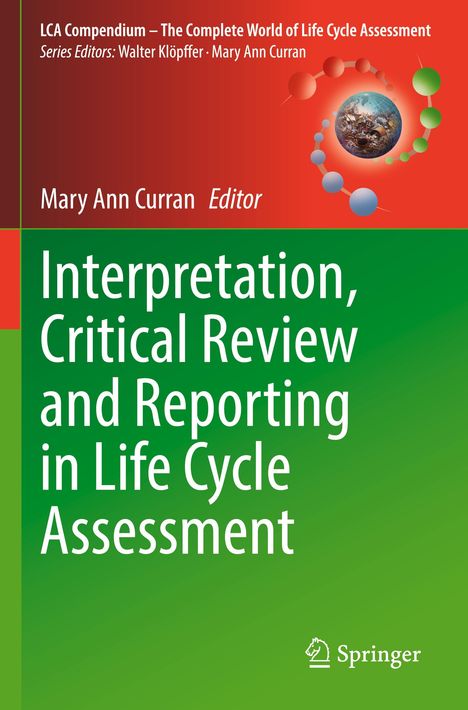Interpretation, Critical Review and Reporting in Life Cycle Assessment, Kartoniert / Broschiert
Interpretation, Critical Review and Reporting in Life Cycle Assessment
(soweit verfügbar beim Lieferanten)
- Herausgeber:
- Mary Ann Curran
- Verlag:
- Springer Nature Switzerland, 08/2024
- Einband:
- Kartoniert / Broschiert, Paperback
- Sprache:
- Englisch
- ISBN-13:
- 9783031357299
- Artikelnummer:
- 11952920
- Umfang:
- 148 Seiten
- Nummer der Auflage:
- 2023
- Ausgabe:
- 2023
- Gewicht:
- 236 g
- Maße:
- 235 x 155 mm
- Stärke:
- 9 mm
- Erscheinungstermin:
- 27.8.2024
- Hinweis
-
Achtung: Artikel ist nicht in deutscher Sprache!
Weitere Ausgaben von Interpretation, Critical Review and Reporting in Life Cycle Assessment |
Preis |
|---|
Klappentext
This book discusses the phase ¿Interpretation¿ in an outstanding way. According to the opinio communis within the LCA community, ¿Interpretation¿ is classified as fourth phase of the LCA framework. However, referring to ISO 14040, this book defines ¿Interpretation¿ according to its function in the LCA framework, and this means that ¿Interpretation has a much broader influence than generally accepted. It overarches goal and scope, inventory analysis and impact assessment. Conclusions are drawn from the results of the inventory and the impact assessment, and recommendations refer to the objective of the study, the goal and scope phase. Likewise to be considered are the defined framework conditions, the reasons for carrying out the study as well as the context of the intended applications and the target groups of the results).
A second highlight of this book concerns ¿Interpretation¿ as discussed in conjunction with Critical Review and Reporting, which is an outstandingapproach. The relationship between interpretation and critical review can be seen in the fact that interpretation is a kind of structured preparation of a critical review; in practice, the performance of a critical review can be made much easier if the preparers of a life cycle assessment study very carefully follow the requirements that are specifically placed on the interpretation.
Because the critical review is the independent quality control of an LCA, the results improve the credibility of reporting. The critical review helps to avoid text weaknesses and potential misunderstandings because these aspects will easier be realized by independent readers from different viewpoints. The reviewers thus also represent the first readership of a study and can help to ensure that the specific requirements for good and clear reporting of life cycle assessments are met. Sound reporting needs clear conclusions.


